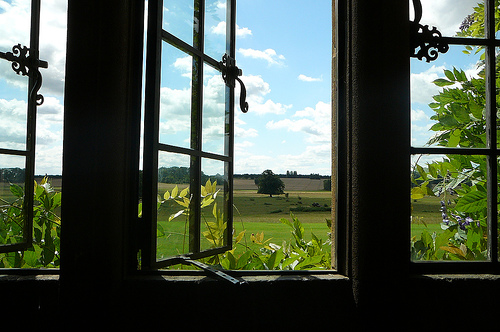
Ventilation
In order to have good health, we must have good blood; for the blood is the current of life. It repairs waste and nourishes the body. When supplied with the proper food elements and when cleansed and vitalized by contact with pure air, it carries life and vigor to every part of the system. The more perfect the circulation, the better will this work be accomplished.
At every pulsation of the heart the blood should make its way quickly and easily to all parts of the body. Its circulation should not be hindered by tight clothing or bands, or by insufficient clothing of the extremities. Whatever hinders the circulation forces the blood back to the vital organs, producing congestion. Headache, cough, palpitation of the heart, or indigestion is often the result.
Respiration
In order to have good blood, we must breathe well. Full, deep inspirations of pure air, which fill the lungs with oxygen, purify the blood. They impart to it a bright color and send it, a life-giving current, to every part of the body. A good respiration soothes the nerves; it stimulates the appetite and renders digestion more perfect; and it induces sound, refreshing sleep.
The lungs should be allowed the greatest freedom possible. Their capacity is developed by free action; it diminishes if they are cramped and compressed. Hence the ill effects of the practice so common, especially in sedentary pursuits, of stooping at one's work. In this position it is impossible to breathe deeply. Superficial breathing soon becomes a habit, and the lungs lose their power to expand. A similar effect is produced by tight lacing. Sufficient room is not given to the lower part of the chest; the abdominal muscles, which were designed to aid in breathing, do not have full play, and the lungs are restricted in their action.
Thus an insufficient supply of oxygen is received. The blood moves sluggishly. The waste, poisonous matter, which should be thrown off in the exhalations from the lungs, is retained, and the blood becomes impure. Not only the lungs, but the stomach, liver, and brain are affected. The skin becomes sallow, digestion is retarded; the heart is depressed; the brain is clouded; the thoughts are confused; gloom settles upon the spirits; the whole system becomes depressed and inactive, and peculiarly susceptible to disease. The lungs are constantly throwing off impurities, and they need to be constantly supplied with fresh air. Impure air does not afford the necessary supply of oxygen, and the blood passes to the brain and other organs without being vitalized. Hence the necessity of thorough ventilation. To live in close, ill-ventilated rooms, where the air is dead and vitiated, weakens the entire system. It becomes peculiarly sensitive to the influence of cold, and a slight exposure induces disease. It is close confinement indoors that makes many women pale and feeble. They breathe the same air over and over until it becomes laden with poisonous matter thrown off through the lungs and pores, and impurities are thus conveyed back to the blood.
Ventilation and Sunlight
In the construction of buildings, whether for public purposes or as dwellings, care should be taken to provide for good ventilation and plenty of sunlight. MH 271-274
Tight bands or waists hinder the action of the heart and lungs and should be avoided. No part of the body should at any time be made uncomfortable by clothing that compresses any organ or restricts its freedom of movement. The clothing of all children should be loose enough to admit of the freest and fullest respiration, and soarranged that the shoulders will support its weight.
CG 426